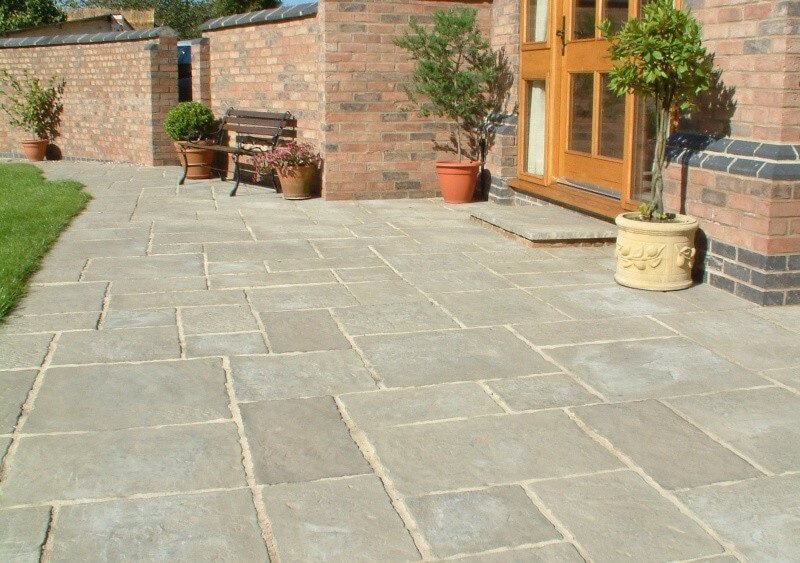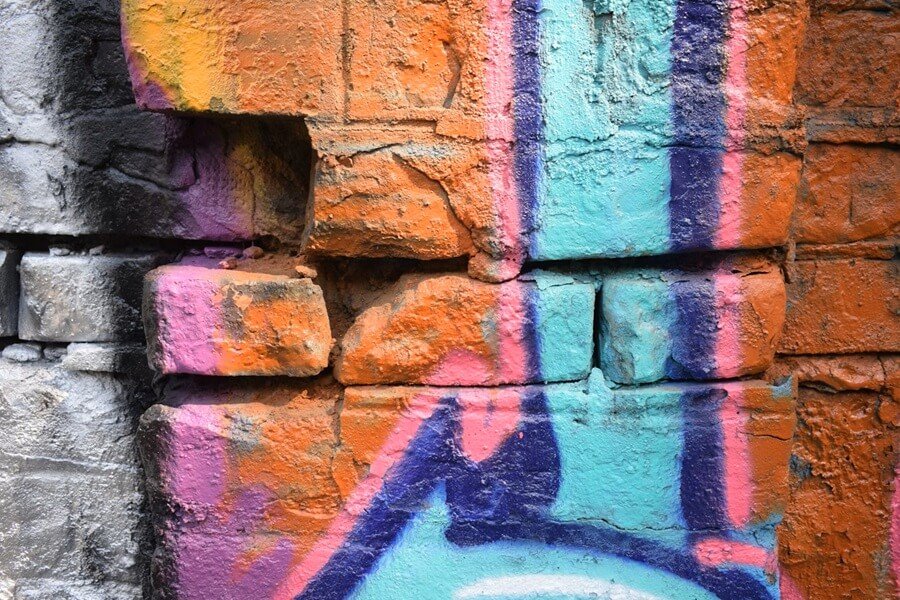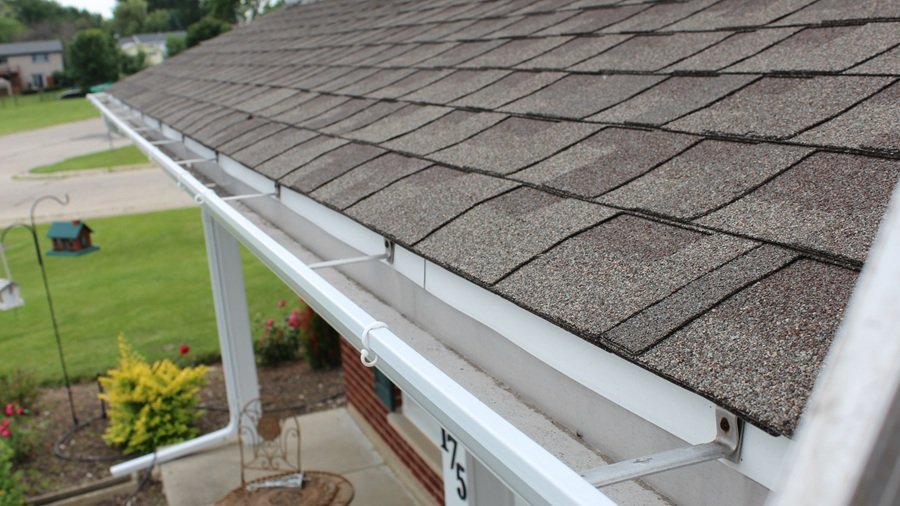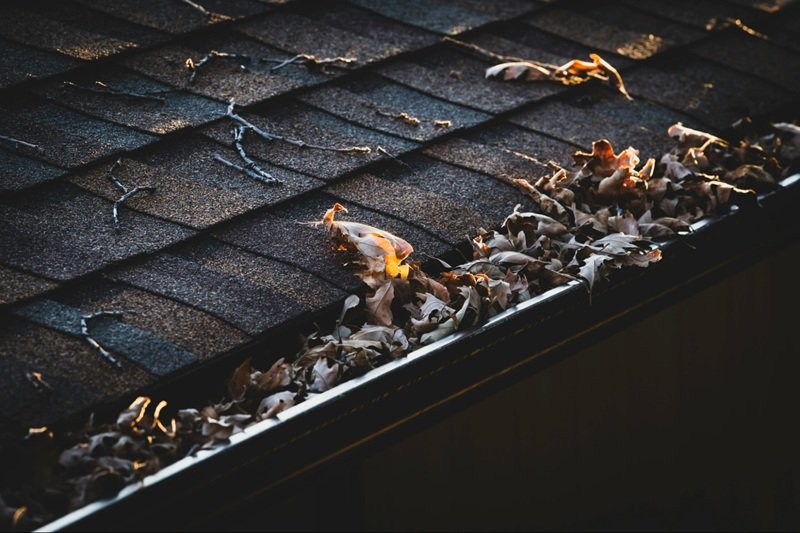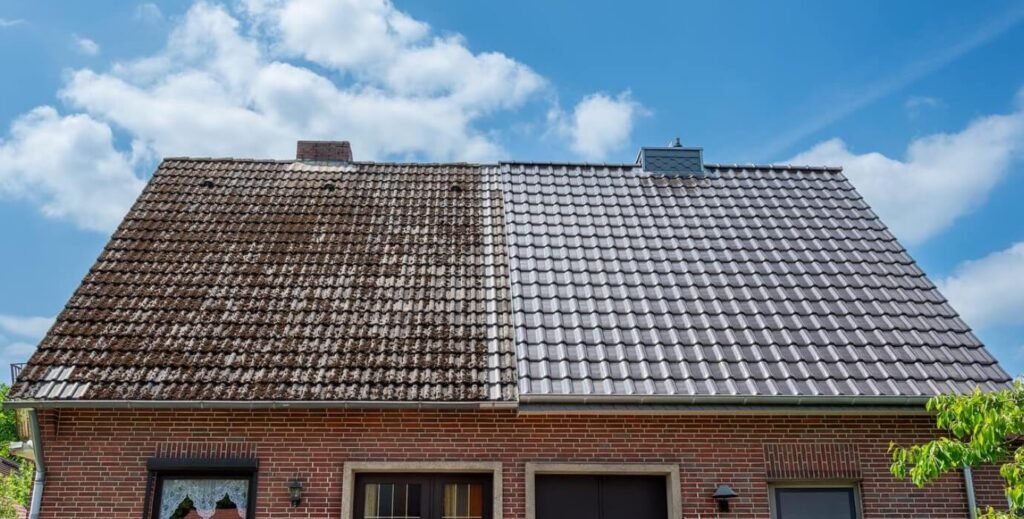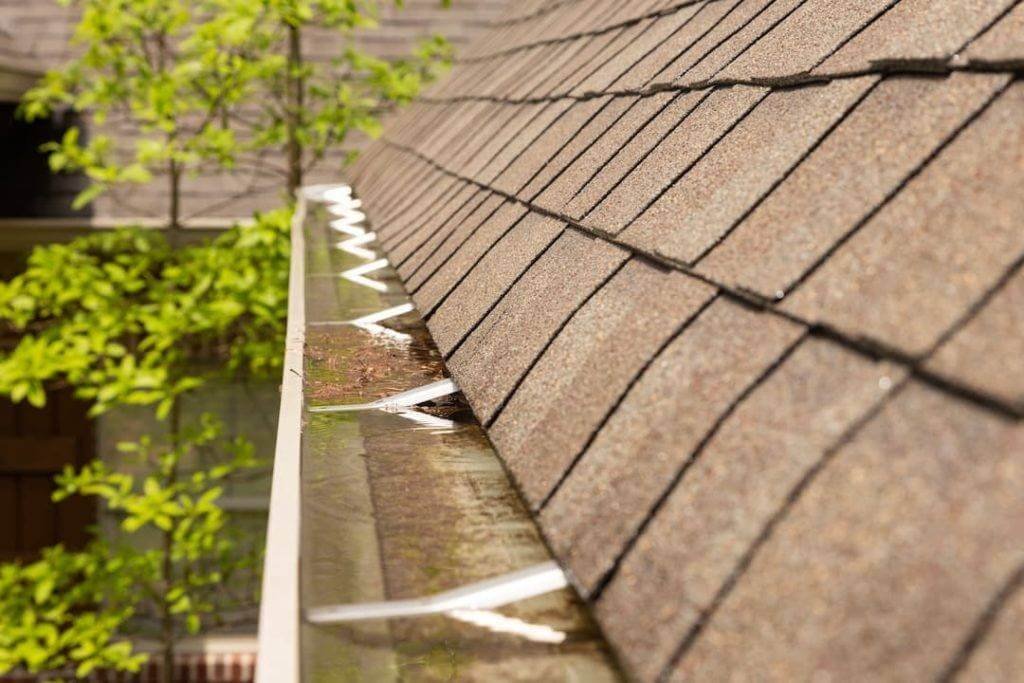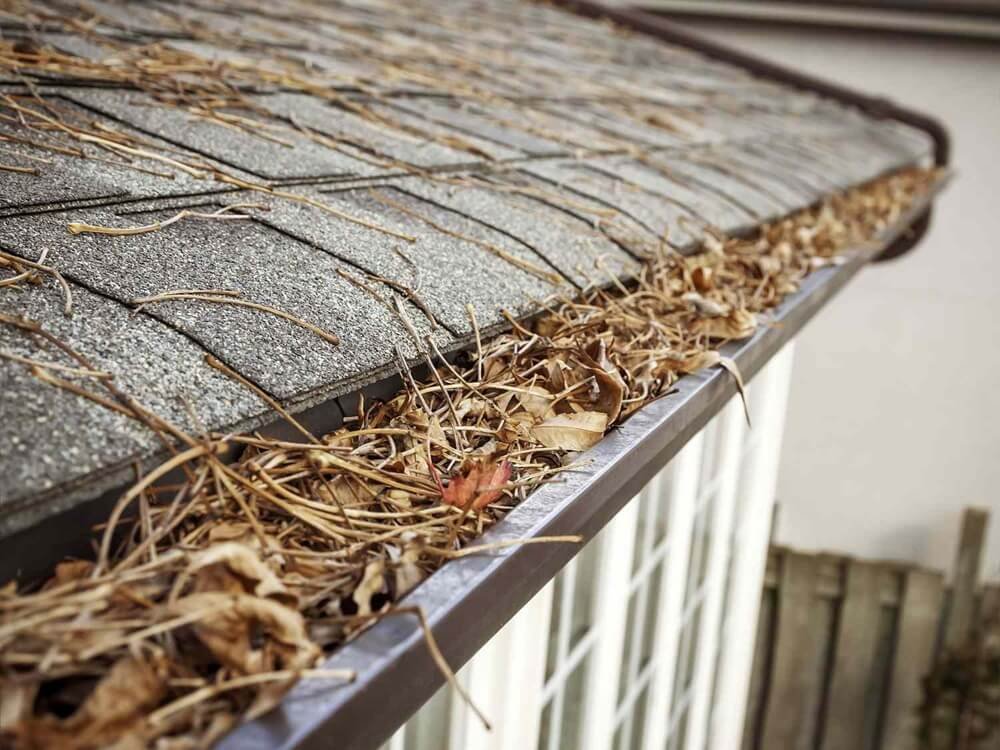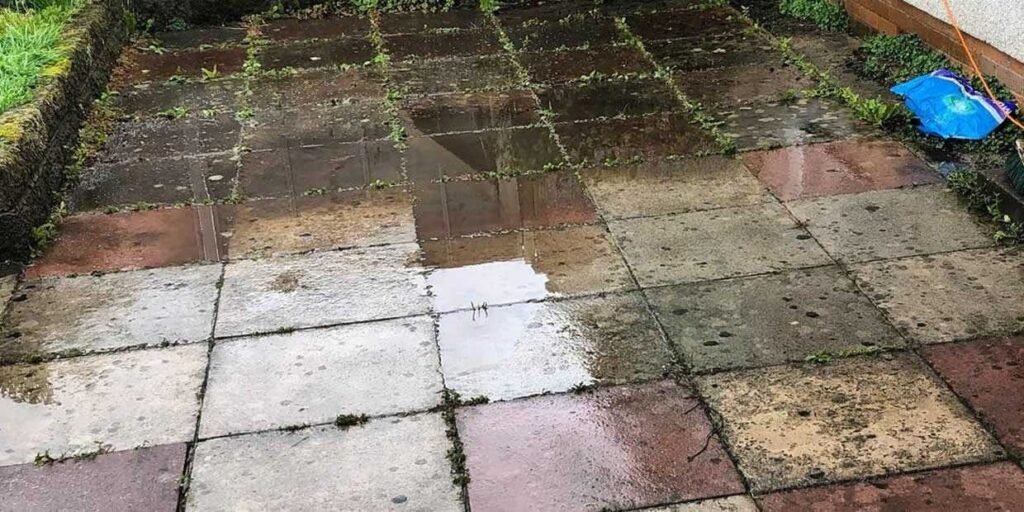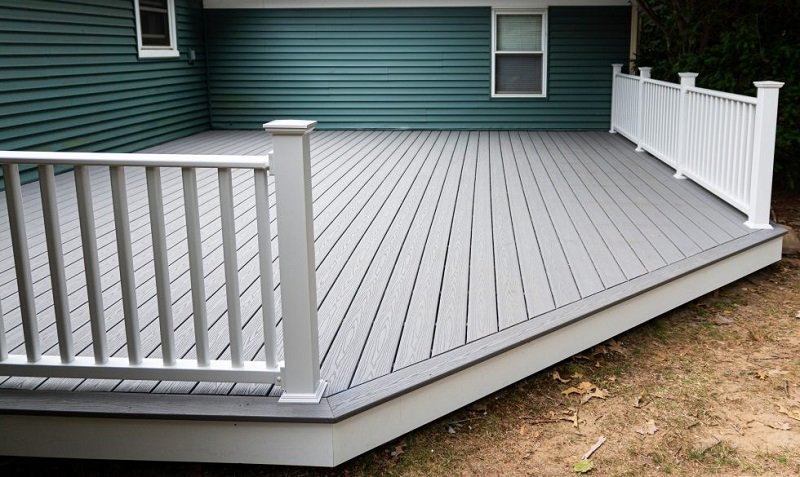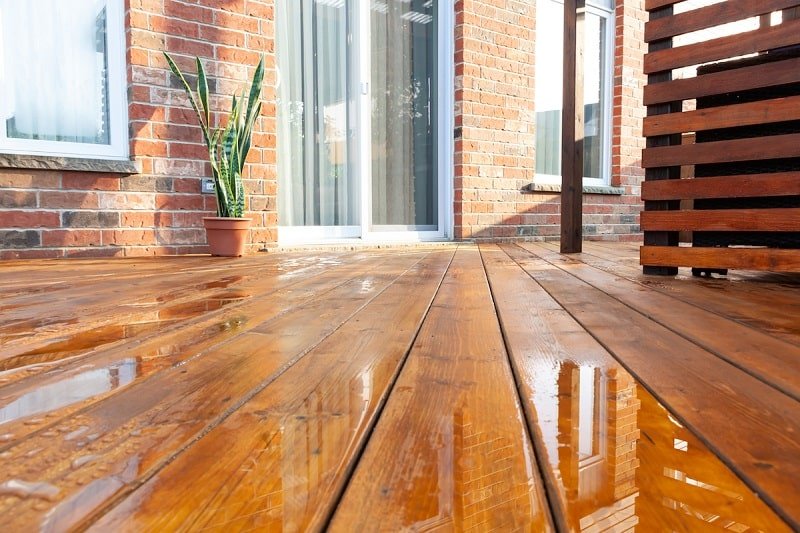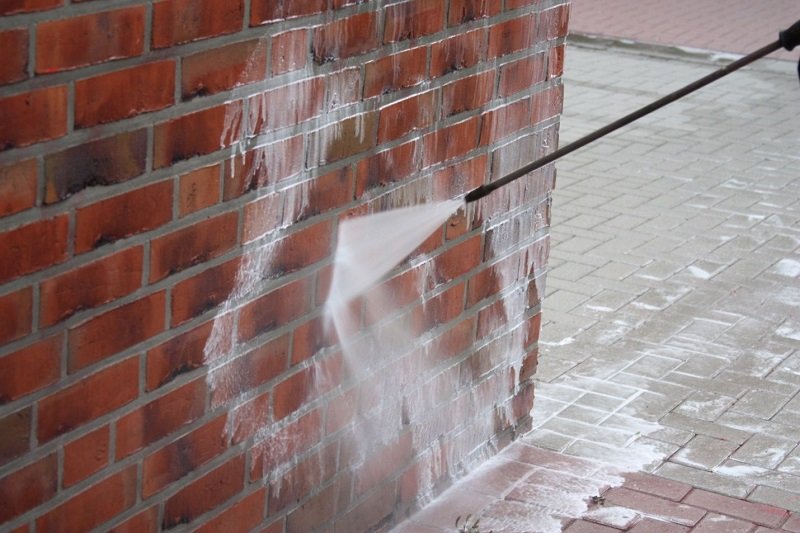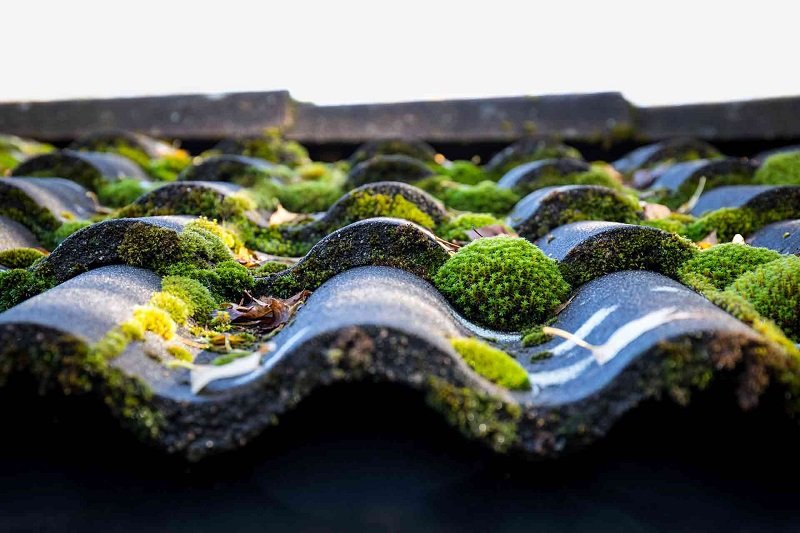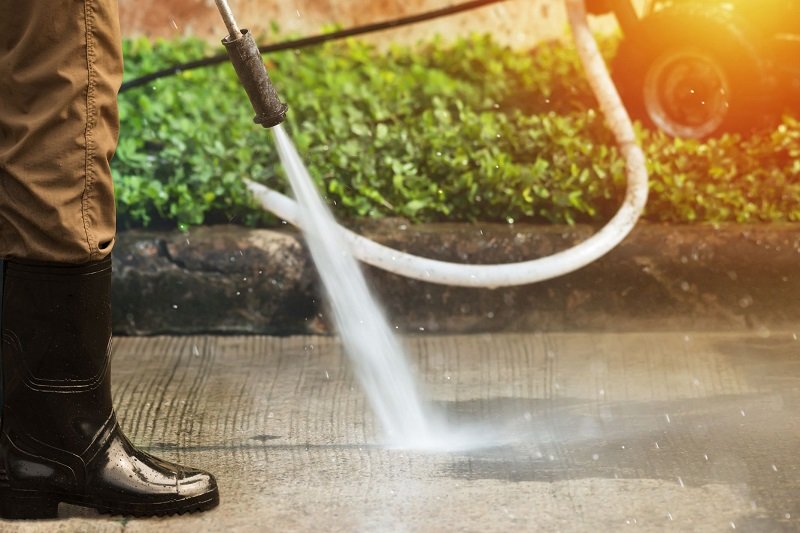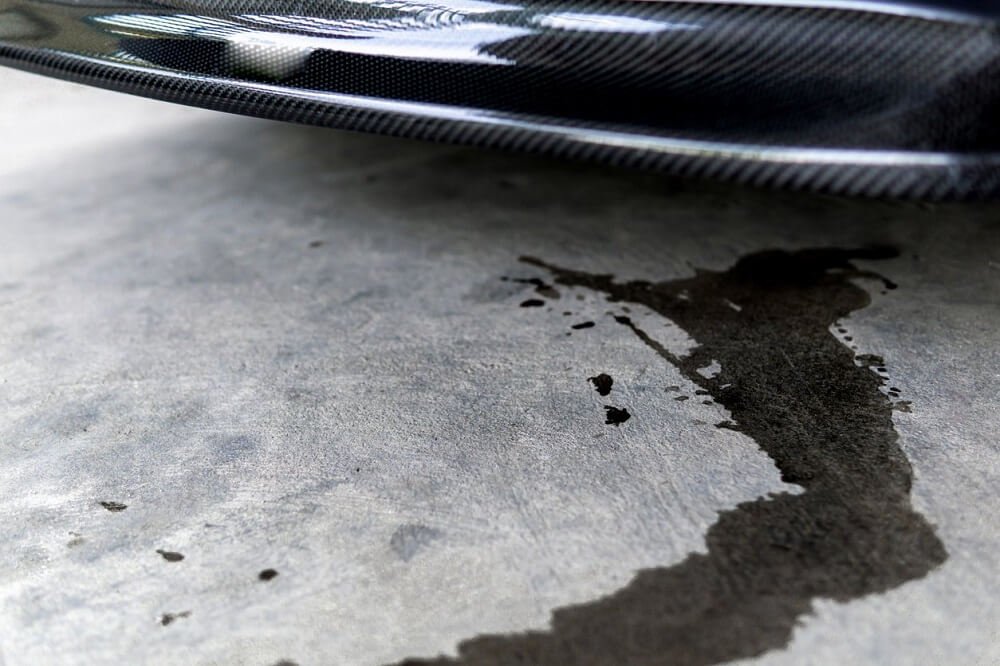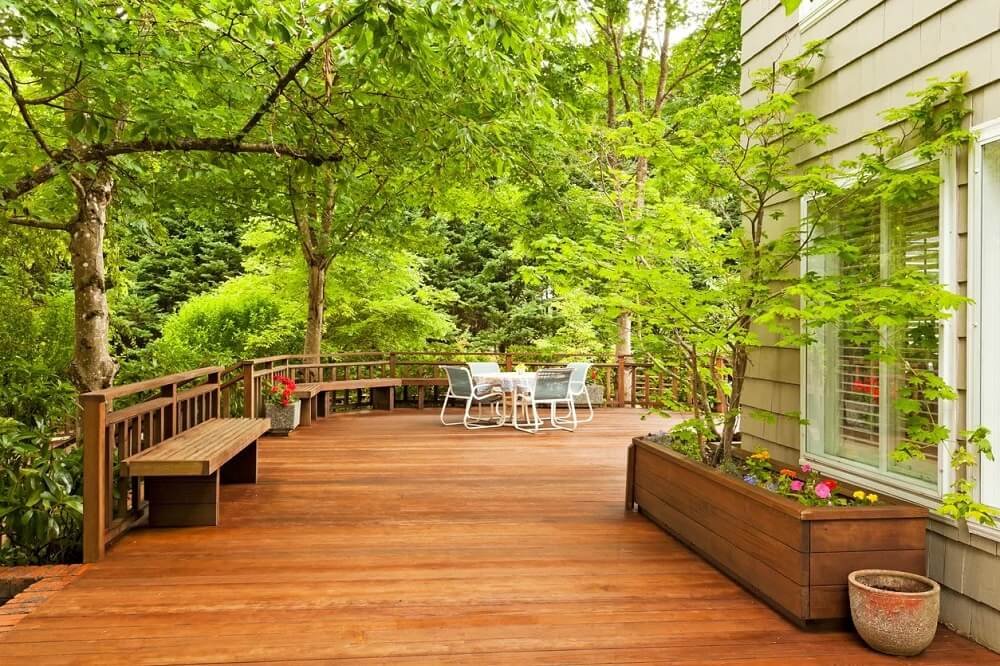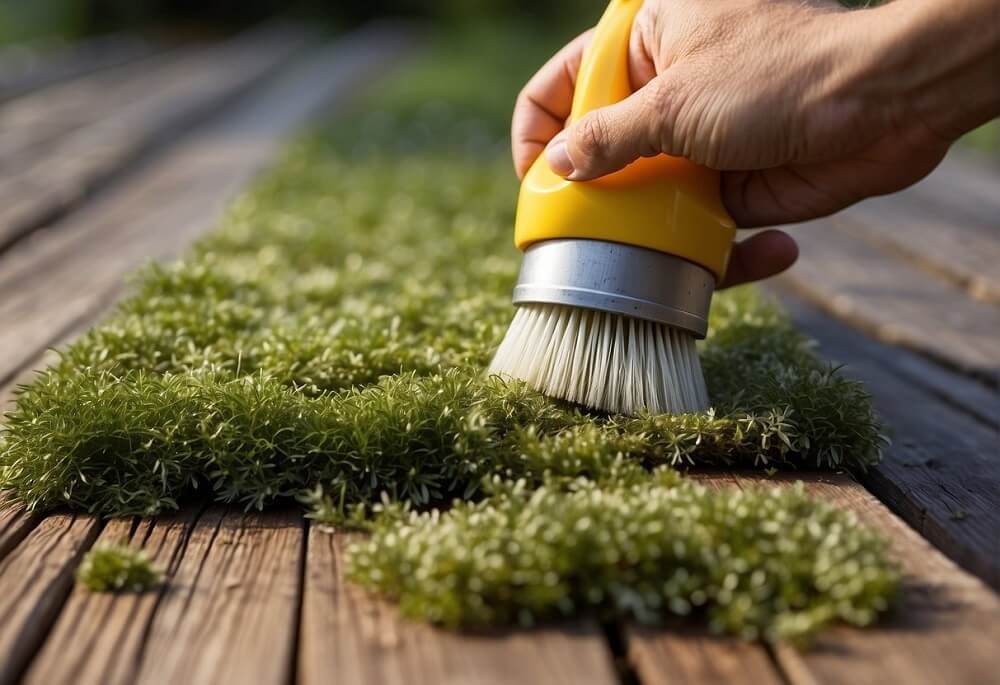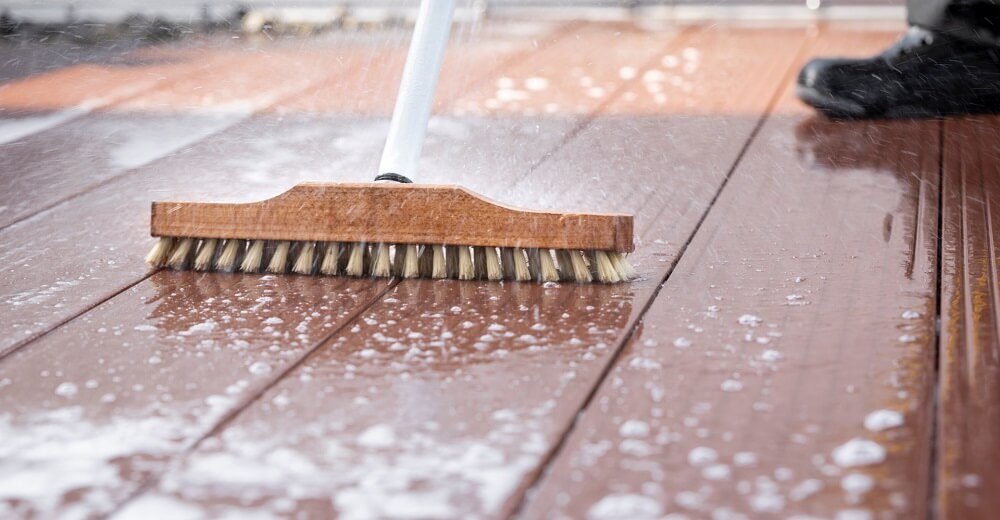We restore patios and garden paths, using gentle, effective cleaning methods that protect every surface.
Keeping your paving slabs clean isn’t just about appearance, it’s about safety and longevity too. Over time, dirt, moss and algae can build up on the surface, making it slippery, stained and dull-looking. Regular cleaning helps prevent this, keeping your patio or garden paths fresh and inviting all year round.
Even without a pressure washer, there are plenty of effective ways to restore your paving slabs. With simple tools and a bit of effort, you can remove moss, algae, and grime, reduce slip hazards and prolong the life of your paving all while saving water and protecting delicate surfaces from high-pressure damage.
In the next sections, you’ll discover easy, practical how to clean paving slabs without a pressure washer.
What you need to clean paving slabs safely and effectively
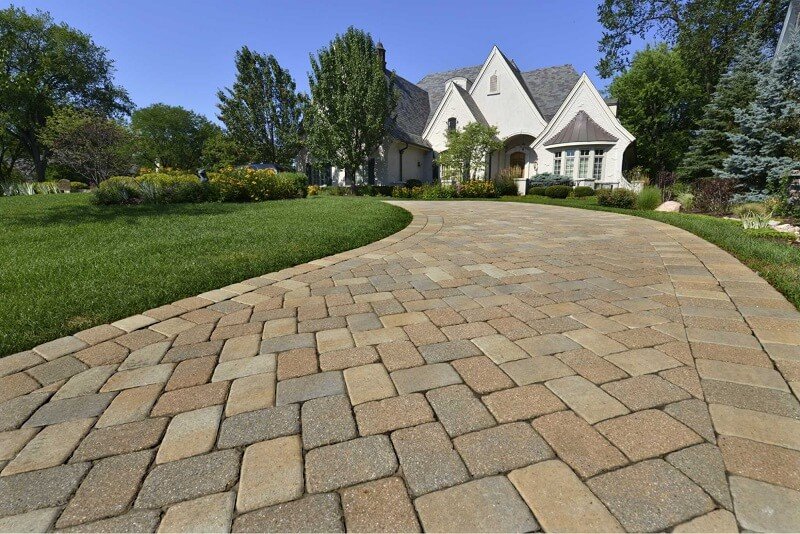
Before you start scrubbing, make sure you’ve got everything you need for a safe and efficient clean. Having the right tools and materials will help you remove dirt and moss without damaging your slabs and without too much effort.
1. Basic cleaning tools
A few simple tools can make all the difference when cleaning by hand:
- Stiff broom or deck brush, perfect for scrubbing away dirt, algae, and grime.
- Bucket or large container, for mixing cleaning solutions.
- Garden hose or watering can, to rinse off soap and residue afterwards.
- Dustpan and brush, for collecting debris once you’ve loosened it.
- Hand scraper or joint brush, ideal for removing weeds and moss between slabs.
2. Cleaning solutions and materials
You don’t need harsh chemicals most stains can be tackled with simple, eco-friendly options:
- Warm water and mild detergent, everyday washing-up liquid works perfectly for general cleaning.
- White vinegar, great for removing moss, algae, and light discolouration.
- Baking soda, lifts stubborn stains and helps neutralise odours.
- Eco-friendly patio cleaner or oxygen bleach optional for deeper cleans or heavy moss build-up.
- Clean cloths or sponges, for small spots or finishing touches.
3. Protective gear
Stay safe and comfortable while cleaning, outdoor surfaces can be slippery or messy.
- Rubber gloves, protect your hands from cleaning agents.
- Non-slip footwear, ensures stability on wet or soapy slabs.
- Old clothes or workwear, cleaning can get messy, so wear something you don’t mind getting dirty.
Methods you can use to clean paving slabs without a pressure washer
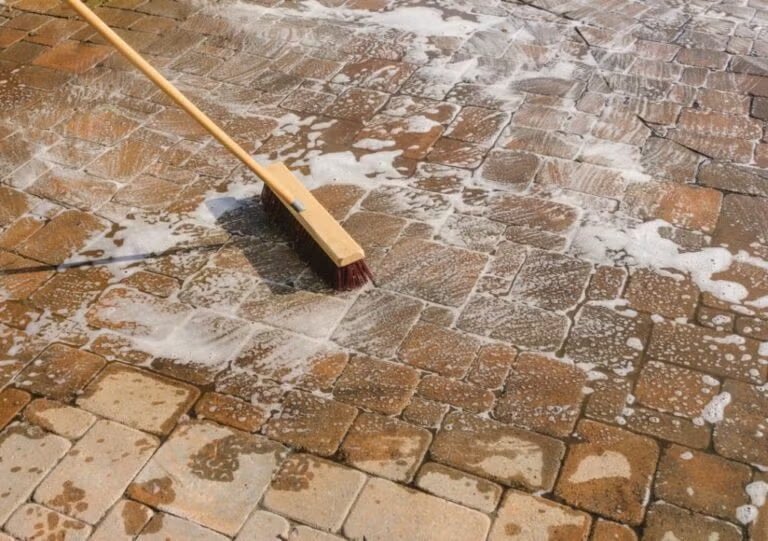
You don’t need a pressure washer to get great results, there are several effective and safe ways to clean paving slabs using simple tools and products. The key is to choose the method that best suits your surface, level of dirt and the results you want.
Manual brushing
This is the simplest and most hands-on method. Using a stiff broom or deck brush, scrub the surface with warm, soapy water to remove dirt, moss, and algae. It’s perfect for light cleaning or regular maintenance and it won’t damage delicate paving.
Soft washing (low-pressure detergent solution)
Soft washing combines a mild cleaning solution with low-pressure rinsing. Mix water with a biodegradable patio detergent or washing-up liquid, apply it using a sprayer or watering can and leave it to soak for 10-15 minutes.
Afterward, gently scrub and rinse with clean water. This method effectively removes moss, algae, and surface grime without harming the paving.
Chemical cleaning (using safe patio cleaners)
For tougher stains, you can use a specialised patio cleaner or oxygen bleach. These products help dissolve organic growth and deep dirt without the need for high pressure.
Always follow the label instructions, test on a small patch first and avoid acidic cleaners that can damage stone or concrete.
Biocide treatment (long-term prevention)
Once your slabs are clean, applying a biocide treatment will prevent moss and algae from returning. It works slowly, killing microscopic spores that cause regrowth.
You can apply it with a garden sprayer on a dry day, no rinsing needed. It’s a smart way to keep your patio looking clean for months at a time.
Steam cleaning (low impact, careful use)
Steam cleaning uses hot vapour instead of water pressure, making it one of the gentlest and most eco-friendly methods. It’s ideal for delicate paving like sandstone or limestone.
Just make sure to move slowly and evenly to avoid heat concentration on one spot.
Baking soda / soda ash cleaning
For eco-friendly stain removal, sprinkle baking soda directly on stains or mix it with warm water into a paste. Leave it for 10-15 minutes, scrub gently and rinse.
It’s especially effective for oil stains, discolouration or organic marks.
Hot water scrubbing
Sometimes, all you need is hot water and elbow grease. Pour hot (not boiling) water over the slabs, let it soak for a few minutes, and scrub with a stiff brush.
This helps loosen algae and grime naturally, perfect for regular upkeep or quick refreshes.
Safe paving slab cleaning methods you can do yourself
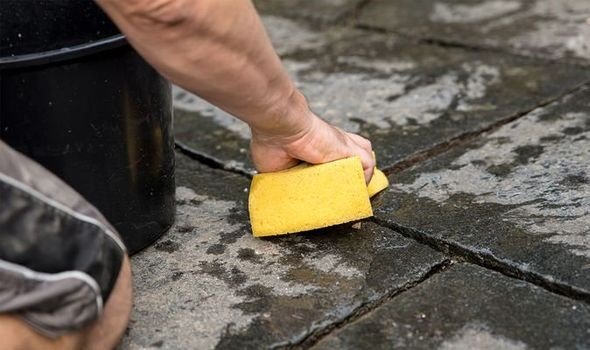
If your patio or garden path is looking dull but you don’t own a pressure washer, don’t worry, there are plenty of safe and effective cleaning methods you can do yourself. These simple techniques remove dirt, moss, and stains without damaging the paving.
Manual brushing
A simple, safe method for regular cleaning, ideal for light dirt, fine moss or general buildup.
Steps:
- Sweep the surface to remove leaves and large debris.
- Mix warm water and a small amount of washing-up liquid in a bucket.
- Pour the solution over the slabs and let it sit for 5-10 minutes.
- Scrub firmly with a stiff brush, focusing on joints and stained spots.
- Rinse thoroughly with clean water using a bucket or garden hose.
Avoid metal brushes as they can scratch the surface and don’t work under strong sunlight to prevent detergent marks.
Soft washing (low-pressure detergent solution)
A gentle yet effective method for general cleaning, perfect for larger areas or delicate paving surfaces.
Steps:
- Mix an outdoor cleaning detergent in a garden sprayer.
- Apply evenly from top to bottom on slightly damp slabs.
- Leave it to work for 10-15 minutes, but don’t let it dry out.
- Gently scrub the surface with a stiff broom or brush.
- Rinse off with a garden hose at normal pressure until all detergent is gone.
Avoid over-concentrating the solution, it may leave marks. Protect nearby plants and grass before spraying.
Baking soda / soda ash cleaning
A natural, eco-friendly method perfect for minor stains, light moss, or shaded areas that stay damp.
Steps:
- Lightly dampen the slabs with clean water.
- Sprinkle a thin layer of baking soda or soda ash over affected areas.
- Leave it for several hours or overnight to work.
- Scrub with a stiff brush to lift dirt and residue.
- Rinse thoroughly with clean water.
Do not mix baking soda with vinegar or acidic substances, the reaction can damage some paving materials.
Hot water scrubbing
A quick, chemical-free cleaning method ideal for regular maintenance and removing moss.
Steps:
- Heat water until it’s hot (but not boiling).
- Carefully pour it over the slabs using a kettle or bucket.
- Let it sit for 2-3 minutes to soften the dirt.
- Scrub with a stiff brush or broom until clean.
- Rinse again with fresh water and let the area dry naturally.
Wear gloves and sturdy footwear, hot water can cause burns. Avoid using this method on plastic or resin-based paving.
Tips to keep paving slabs clean for longer
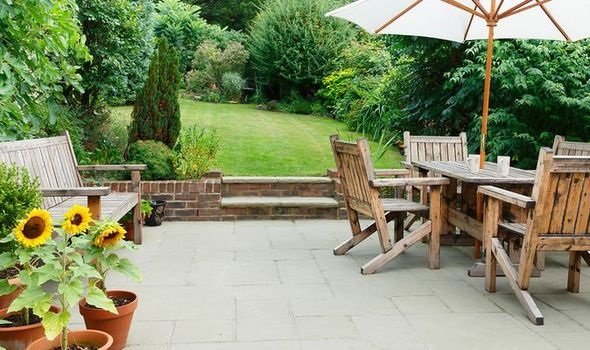
Once your paving slabs are spotless, a bit of regular care will help them stay that way for months, even years. Simple maintenance habits make a huge difference in keeping moss, weeds, and stains under control.
Sweep regularly to prevent moss buildup
A quick sweep once a week removes dirt, dust, and organic debris before they have a chance to settle. This prevents moss and algae from taking hold, especially in shaded or damp areas.
Remove weeds between joints
Weeds trap moisture and make your patio look untidy. Use a joint brush or weed scraper to keep gaps between slabs clear. Pull out roots completely to stop them from growing back.
Apply a sealant once a year for protection
A quality paving sealant adds a protective layer against moisture, stains, and UV damage. It also makes cleaning easier in the future and helps preserve the colour of your slabs. Spring or early summer is the best time to apply it, when the surface is dry.
Rinse after garden work to prevent stains
After gardening or barbecues, quickly rinse your patio with clean water to remove soil, plant residue, or grease. It only takes a few minutes and helps prevent long-term discolouration.
What to watch out for when cleaning paving slabs
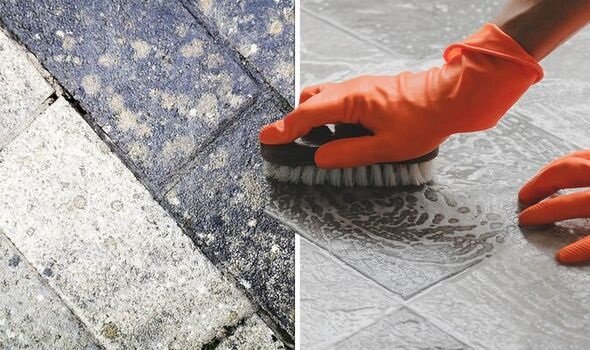
Cleaning paving slabs might seem simple, but a few small mistakes can damage the surface or make the job harder than it needs to be. Keep these safety and care tips in mind before you start:
Check the weather forecast
Avoid cleaning on very hot or rainy days, heat can cause cleaning solutions to dry too fast, while rain will simply wash them away.
Test your cleaning solution first
Always test any detergent or cleaner on a small, hidden section of the patio. This helps ensure it won’t discolour or damage your slabs.
Don’t mix cleaning products
Never combine substances like vinegar and bleach. The reaction can release harmful fumes and may also stain or damage the paving.
Protect plants and outdoor furniture
Cover nearby grass, plants, and furniture before applying any cleaning product. Even mild solutions can cause spotting or leaf burn.
Watch your footing
Wet paving can be slippery. Make sure the area is stable and wear non-slip footwear and rubber gloves to stay safe while scrubbing.
Avoid metal brushes
Wire brushes can leave marks or scratches on stone and concrete. Use stiff plastic or nylon bristles instead.
Be cautious with coloured or sealed paving
Strong cleaners can dull the surface or strip protective coatings. Choose mild, pH-neutral cleaners for sealed or decorative slabs.
Rinse thoroughly after cleaning
Make sure to remove all cleaning product residue, leftover detergent can attract more dirt and make the surface slippery once dry.
Check the joints before scrubbing
Look for loose sand or weeds between slabs and tidy them up first. Scrubbing over unstable joints can make them worse.
Let everything dry completely
After rinsing, allow the paving to dry fully before walking on it or placing garden furniture back in position.
When it’s recommended to hire a professional for paving slab cleaning
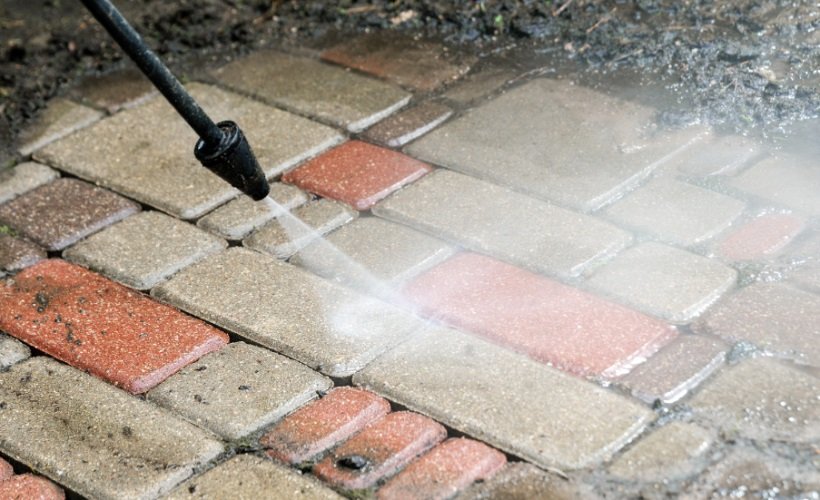
Sometimes, even the best DIY effort isn’t enough to bring your patio back to life. If your paving slabs are heavily stained or overgrown with moss and weeds, professional cleaning might be the safest and most effective option.
If your slabs are covered in moss, algae, or oil stains, professionals can use specialist cleaners and low-pressure equipment to remove dirt thoroughly without damaging the surface.
Cleaning large patios or uneven, sloped areas by hand can be exhausting and time-consuming. A professional team can complete the job faster and more evenly.
Materials like limestone, sandstone, or marble can stain or scratch easily. Professionals know how to clean them safely using the correct pH-neutral solutions and gentle methods.
If you’ve already cleaned your slabs but moss or weeds quickly returned, professionals can apply biocide treatments or sealants that offer long-term protection.
When weeds or compacted dirt keep reappearing, deep cleaning and re-sanding joints might be needed, something best handled with specialist tools.
If your paving is cracked, loose, or weathered, a professional cleaner can assess the damage first and use low-impact cleaning to avoid further harm.
If you don’t have the right brushes, sealants, or garden sprayer, or simply prefer not to spend hours scrubbing, hiring experts can save time and guarantee results.
Professionals can seal your paving after cleaning, protecting it from stains, algae, and water absorption, keeping your patio looking fresh for much longer.
Professional patio cleaning in Bristol
If your patio needs a deeper, longer-lasting clean, Bristol Blast Away provides eco-friendly paving slab cleaning and sealing services across Bristol and surrounding areas.
Their team uses advanced low-pressure and steam-cleaning equipment to restore your paving safely, followed by long-term protection treatments to keep it looking like new.
Keeping your paving slabs clean doesn’t have to be complicated, with the right methods and a bit of regular care, you can keep your patio looking fresh all year round.
But when dirt, moss, or stains get too tough, Bristol Blast Away is here to help with safe, eco-friendly cleaning and long-lasting protection.
A clean patio isn’t just about looks, it’s about comfort, safety, and pride in your outdoor space.

